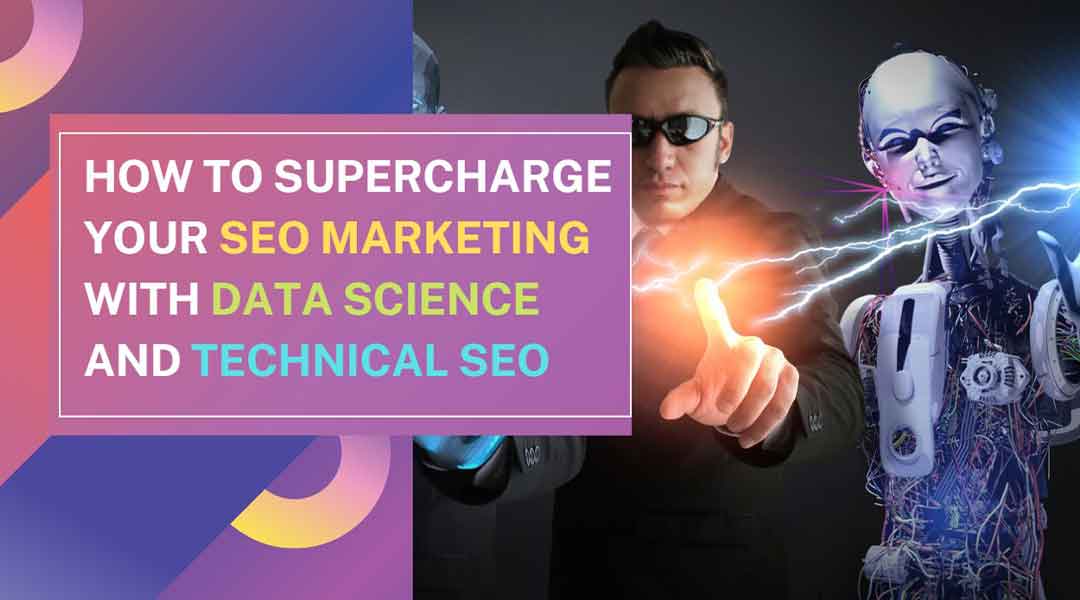The current marketing landscape is rapidly evolving and becoming more competitive than ever before. The scale of digital transformation and the associated boost in workplace productivity and customer experience that we’ve seen across all industries is largely thanks to data. In fact, IDC estimates that by 2025, worldwide data will reach 175 zettabytes – more than double the amount of data produced in 2022.
Table of Contents
This clearly suggests that the data processing and analysis tools that professionals use on a daily basis will be even more crucial in the years ahead. With that in mind, it’s critical for marketers to leverage data insights in order to drive their marketing strategies in the right direction.
According to Pennsylvania’s Wharton School of Business, 57% of marketers incorrectly interpret their data, leading to costly mistakes. This is largely due to the fact that marketers often focus on the result of A/B testing and neglect to account for other data points that could provide an even more accurate picture.
With this enormous growth in worldwide data, technical SEO and data science have become increasingly intertwined, signaling a need for conversion rate optimization agencies to take advantage of these new insights in their strategies.
Why Infrastructure Is Important for A Cohesive, Modern SEO Strategy?
The recent pandemic has resulted in a massive shift to online shopping, requiring organizations to quickly modernize and update their digital presence. Modern consumers look at digital platforms as their go-to destination for information, products, and services. Beyond this, the rationale behind their purchasing decisions is more data-driven than ever before. New search trends have emerged, suggesting that consumer preferences have shifted drastically.
As a result, technical SEO has become more important than ever before. It’s no longer enough to simply optimize your website for keyword rankings; marketers must also look at page speed, mobile responsiveness, and other underlying technical factors that can impact the user experience.
The search engines now reward sites that have a good backend infrastructure, making it crucial for marketers to have a strong technical SEO strategy in place.
SEO marketers must make use of data science and data-driven tools to create the most effective and efficient marketing strategies. From statistical analysis to full API access, data processing algorithms designed for Big Data to visual representations of data, marketers can obtain a clearer picture of search engine performance and consumer behavior. By leveraging data insights, SEO marketers can forecast upcoming trends; research emerging market opportunities; understand and extract data from complex sources; and automate insights for better decision-making.
No doubt, marketers rely heavily on data processing to assess webpage health and SEO statistics, as this enables them to remain competitive in the search game. The ever-increasing scale of data provides marketers with vast opportunities for optimization, leading to more precise decision-making and better marketing ROI.
Without proficiency in machine learning (ML), artificial intelligence (AI), and data science, this level of data processing would be difficult to achieve. Fortunately, modern technology stacks, such as open-source tools and cloud computing platforms, can help marketers make sense of their data without needing to become experts in the field.
How to Extract SEO Data Without Being a Data Expert?
Today, SEO marketers need to deal with an intimidating amount of data to get regular tasks like research, on-site analysis, and user intent modeling done. They need to experiment with their data to find industry- or organization-specific insights, but most lack the degrees or experience necessary to do so.
Fortunately, there are AI SEO tools and ML-enabled software that make it easier to analyze data, even for those who don’t have a specific degree or extensive experience in the field. These tools provide insights into data points such as search engine performance and consumer behavior, making it easier to develop a comprehensive SEO strategy.
Let’s take a closer look at how AI SEO tools can significantly affect SEO marketing. We all know that there are two types of visitors to a webpage: humans and bots. Spiders or bots are virtual audiences that comb through a page’s technical content, looking for links and code that indicate its relevance to certain search queries.
In case of website errors like broken links or unintended permission issues, bots are unable to extract crucial content from the page. This can dramatically affect the search engine rankings of the webpage, leading to lower visibility and a decrease in organic traffic.
To optimize their website performance, SEO marketers need to look beyond keyword rankings and consider other technical elements. AI SEO tools can analyze the data from web logs – which track every unique webpage interaction – to find deeper insights into website performance and consumer behavior.
This is just one example of how AI and ML can benefit the SEO marketer, but there are many more ways that these tools can help. From optimizing website speed to improving content quality, AI SEO tools can help marketers make their websites faster, more relevant, and better optimized for search engine rankings. In the case of A/B testing, AI SEO tools can conduct predictive analytics to bridge the gap between 90% and 99% significance in very little time without requiring weeks of data analysis.
Additionally, AI SEO tools can provide insights into user intent and search terms, helping marketers further tailor their website content to consumer needs. For instance, retailers can use AI to analyze customer purchase history and identify which products are most likely to be purchased in the future, or marketers in the banking industry can identify that concise content performs highest among its clients.
These AI-assisted insights can make it easier to identify opportunities for website optimization and create a comprehensive SEO strategy.
Role Of Data Science In SEO
Data science plays a crucial role in the new age of SEO. While it is often used to analyze complex data sets, data science can also help marketers better understand consumer behavior and optimize website performance.
For example, data science can be used to identify which keywords and pages generate the most traffic for a given website. It can also be used to uncover hidden opportunities for optimization and identify where competitors are outperforming the current website.
Data science can also be leveraged to create a tailored SEO strategy for an organization. While this requires more technical expertise than traditional SEO, data science can be used to identify industry-specific best practices and create a comprehensive plan for optimization.
With the help of data science, SEO marketers can develop an SEO strategy that is tailored to their specific industry and customers. This allows them to better understand the needs of their clients and create strategies that are aligned with their goals.
How to Supercharge Your SEO With AI SEO Tools?
Artificial intelligence and machine learning have made it easier than ever to gain insights into SEO performance and optimize website content. AI SEO tools can provide marketers with actionable data points that inform their SEO strategy and increase website visibility.
By leveraging the power of AI and ML, SEO marketers can optimize their websites faster, improve user experience, and generate higher organic traffic. AI SEO tools can also provide greater visibility into how competitors are performing, which can, in turn, help marketers identify unique opportunities for optimization.
CORE AI, for instance, is an AI-powered SEO tool that can detect even the slightest changes in search engine algorithms and make recommendations to improve SEO performance. It can also compare target keywords against 200+ ranking factors to determine how they will impact website rankings.
SEO Lever Control (SEO-FC) is another AI-powered SEO feature that gives you real-time control over your SEO strategy. With this tool, you can set the overall aggressiveness of your SEO strategy and focus on groups of keywords based on your product categories, locations, service types, or any other goals.
These AI SEO tools can help marketers optimize their websites for search engine rankings, providing vital insights into SEO performance and making it easier to develop a tailored SEO strategy.
In addition to these benefits, AI SEO tools can also provide industry-specific insights that will inform marketers’ decisions and help them better understand the needs of their clients.
All in all, AI SEO tools present a new level of industry-specific insights that provide tailored best practices and actionable data points for SEO marketers. With the help of AI tools, organizations can create a comprehensive SEO strategy that is tailored to their specific industry and customers. This will enable them to gain a competitive edge and increase their traffic, visibility, and rankings in the SERPs.
Ultimately, AI SEO tools can help organizations gain greater insights into their operations and develop targeted SEO strategies that will drive more traffic and conversions. Investing in AI SEO tools can be a great way to gain a competitive edge and increase organic reach.









